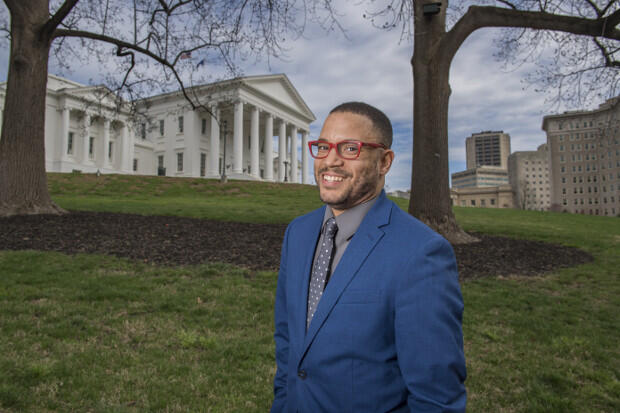
Nov. 9, 2018
Political science chair sees ‘blue ripple’ in midterm elections
Share this story
The votes are still being counted in some key races across the country, but the results are largely in for the 2018 midterm elections. Nationally, the Democrats gained the majority in the House of Representatives and the Republicans retained control of the Senate.
Ravi Perry, Ph.D., chair of the Department of Political Science in the College of Humanities and Sciences at Virginia Commonwealth University, shared his thoughts on this year’s election results and what they could mean for the future.
What are your biggest takeaways from this year's midterm elections?
The country had major wins in terms of descriptive representation, more women in Congress than ever before, the first gay governor, the re-election of a bisexual governor, the election of Native American and Latinx women in Congress, etc. We saw 150,000 new voters in Virginia register to vote and the highest numbers on record of early voting in states where that is allowed. While pundits described the midterms as a blue wave, I characterize it as more of a blue ripple; a ripple in congressional House races because it is so very difficult to win in gerrymandered districts.
What results stick out to you as being especially important on a national level? How about in Virginia?
On a national level, the House flipped to be controlled by Democrats — this will create the kind of checks and balances our founders intended. This is also critical for investigations of the president not initiated before due to partisan control of all three branches. However, for the Democrats, this will be a challenge as they have an internal fight about who should be speaker.
In Virginia, the wins by Jennifer Wexton, Elaine Luria and Abigail Spanberger highlight the key role of women in this #MeToo era in running for office. Additionally, each of those districts is majority white, and haven't been won by Democrats in decades. This suggests that even though whites are fleeing the Democratic Party as their attitudes trend to the right, Democrats are still competitive in majority-white congressional districts.
Any big surprises this year?
Malcolm Kenyatta was elected as the first openly gay black candidate to state-level office in Pennsylvania.
The 2020 election looms ahead. What ramifications do this year's results have on those races, including the next presidential campaign?
Beginning now, the jockeying for presidential campaign attention begins. But not much can be predicted as Americans have short attention spans when it comes to politics.
Anything else you'd like to add?
We should all be proud of the relatively high voter turnout!
Subscribe to VCU News
Subscribe to VCU News at newsletter.vcu.edu and receive a selection of stories, videos, photos, news clips and event listings in your inbox.










